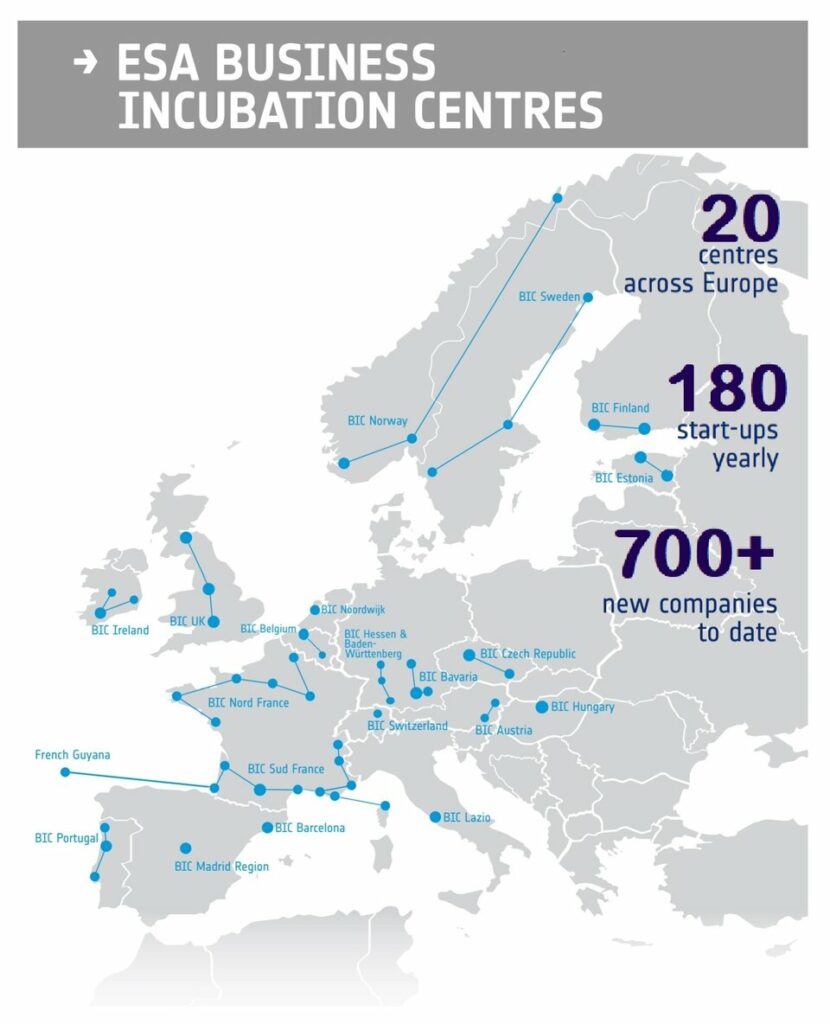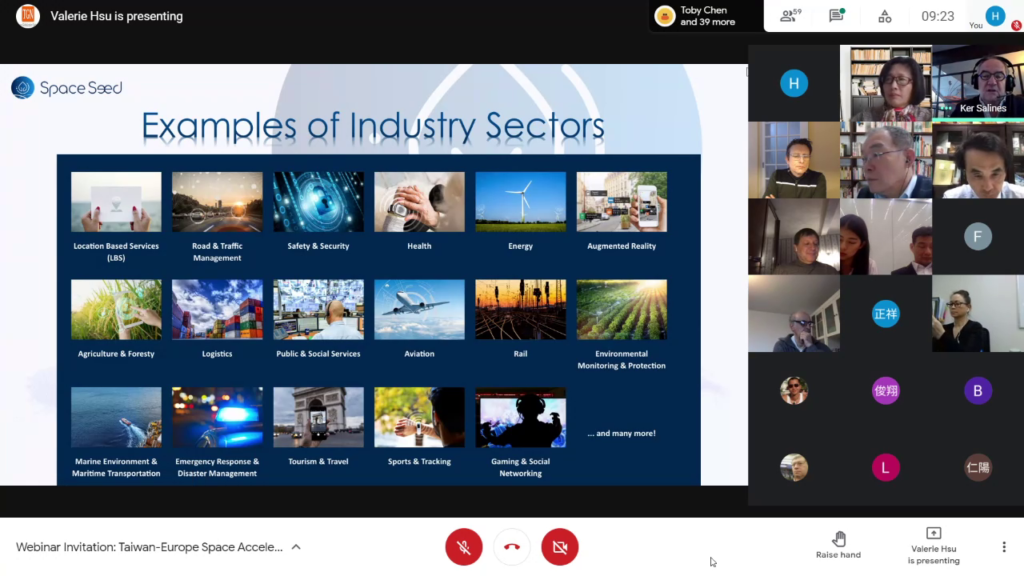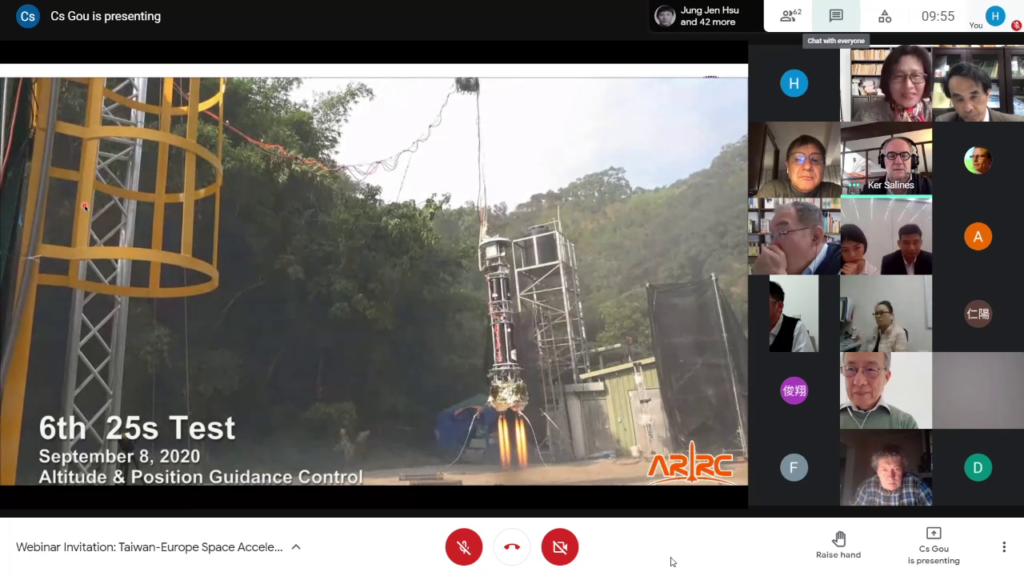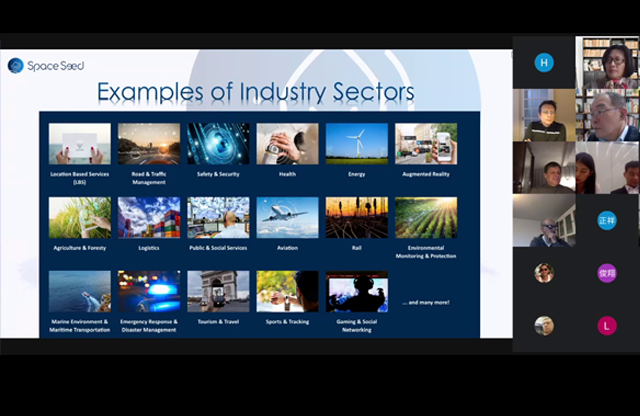This webinar was organized as a part of the Tiger Accelerator Hub2Hub project. For more information, please follow Tiger Accelerator’s official channels.
While some might imagine the Space sector as a distanced and hard-to-reach territory for businesses, this is far from the truth. In fact, the Space economy contains opportunities for innovative entrepreneurs and companies in every sector, via the key concept of ‘Space Connection’: space technologies and space systems can be indeed transferred and/or utilized in any industry.
With this premise in mind, Bruno Naulais and Philippe Lattes, two European Space entrepreneurship experts, have gathered in Tiger Accelerator’s webinar Taiwan-Europe Space Accelerator Hub Connection, to share their experiences regarding successful practices in incubating and accelerating space-connected start-ups in Europe, and how these Space sector successes might be replicated or adapted in Taiwan.
Also participating in the webinar discussions were Dr.Jong Shinn Wu, professor at NYCU (formerly NCTU) University Taiwan and the Founder/Director of Advanced Rocket Research Center (ARRC), and Dr. Leo Lee of GO SMART & Startup Terrace Linkou. Dr. Wu provided an overview on the strengths, needs, and near-future roadmap for the Taiwanese space sector. Dr. Lee provided insights on the Taiwanese startup ecosystem’s readiness for international space-connected businesses to expand to Taiwan and to connect with Taiwanese stakeholders.
Space Connection: European examples & best practices
The Space sector consists of three interconnected categories: Upstream, Midstream, and Downstream. Upstream involves launchers, satellites, and other efforts to place objects into space. Midstream involves data transfer, data storage, and the related ground infrastructures. Downstream involves the (commercial) applications of space services and space technologies.
According to PWC’s 2019 Space Sector report, all three categories in the space sector are growing at a steady pace. However, the size and growth of the Downstream sector (with a market size of €187bn in 2016) outperforms the other two categories, and has become an important focus of business attention.
In the context, we can consider the successful case of the ESA BIC (European Space Agency Business Incubation Centres) network. Now spanning over 21 incubation centres across 18 European countries, the network was established to facilitate a fertile environment for space-connected entrepreneurship in the growing market. Until now ESA BIC has supported close to 1,000 new companies in Europe, connecting them with technical, business, and financial resources.

It’s important to note that all the incubation centres in the ESA BIC network are not in themselves space-oriented, but are simply high quality and resourceful organizations experienced in supporting startups in any industry. There are opportunities for space-connected innovations and space technology applications in every sector of business, and rather than only targeting ‘space’ startups, oftentimes the ESA BIC network is able to help non-space startups identify and realize their ‘space connection’, hence qualifying them to apply to the network supports.
To illustrate this, one might draw attention to the rich portfolio of successful ESA BIC alumni. From using ESA satellite Lidar technology for wind measurement application in the energy & aviation sectors, to expanding the GNSS network into pioneering indoor positioning solutions for retail, events and smart-building markets, to providing geoanalytics from Earth Observation data and delivering insights to markets such as water management, forestry, food and agriculture, innovative European startups were able to utilize space technology in diverse sectors, using space services to provide highly valuable product offerings in every industry.

Space Connection for Taiwanese entrepreneurs
As in Europe’s examples, this notion of identifying the space-connection in various industries can also be applied to the entrepreneurship ecosystem in Taiwan. With existing competitive advantages in semiconductor technology, electronics, telecommunication, and manufacturing, innovative Taiwanese companies might find themselves in a good position to extend their ambition and capacity into space, or utilize the potential of space technologies to transform their current operations.
Currently, there are promising initiatives in the Space economy in Taiwan, both from public bodies and from the private sector. From the government, new space laws and regulations are being moved forward to provide more structure and order in this area. The NSPO, Taiwan’s National Space Organization, is actively trying to connect Taiwan’s supply chain infrastructure with space industries, as well as curating space-oriented talents via bodies such as the Taiwan Space Industry Development Association (TSIDA). Furthermore, Taiwan’s National Space Program has initiated its Third Phase, with plans to launch high resolution Earth Observation satellites, the B5G Communication Satellite and other satellites into Space in the coming decade, along with other ambitious space projects such as Deep Space exploration.

In the private sector, since Taiwan has a robust industrial supply chain and mature operations for satellite services, it is well positioned to supply products for both internal and external space industry needs. Currently, a number of Taiwanese tech component providers are already engaged with major international space companies such as SpaceX and Amazon. By the end of 2020, Taiwan Space Industry Development Association (TSIDA) had supported more than 40 companies active in the space sector.
In terms of business and entrepreneurship support, initiatives such as the Startup Terrace in Taipei and the various incubators offered by ITRI (Taiwan’s Industrial Technology Research Institute) also provide a helpful setting for (space-connected) startups and SME’s to grow their businesses and connect with different resources and markets.
Taiwan-Europe collaboration in supporting space-Connected startups
Space Seed is a project started by Bruno Naulais and Philippe Lattes, together with a number of other experts each with specialized experiences in the space industry. The goal of Space Seed is to facilitate space-connected entrepreneurship and innovations around the world, and to create an international network of space-connected business ecosystems.
With the solid foundation of its partnerships in Europe with private companies, research labs, engineering schools and other stakeholders, Space Seed works with local ecosystems in various countries to connect them with relevant parties in Europe such as customers, sources of funding, incubators and technical partners, in an effort to provide business and technical support to the local space-connected innovators, and to introduce key space-connections to non-space entrepreneurs.
In Taiwan, the first step for Space Seed in this process might be to work with incubators such as Startup Terrace to begin a dialogue with local startups and SMEs, and try to identify space technologies or space assets that can help them develop their products. By so doing, these startups might become space-connected.
As seen in ESA BIC’s incubation work in Europe, space technologies can be applied to diverse markets, and it is imaginable that there are Taiwanese businesses who might be interested in developing such a space-connection in their respective industry. For example, since IoT is a major upcoming development area in the Taiwanese entrepreneurship environment, there are many IoT startups active in the various incubators and accelerators in Taiwan, and it might be possible for certain IoT companies to incorporate satellite communications and other space assets in their technology to enrich their product portfolio.
In this Taiwan-Europe collaboration, there is also a second element: supporting space-connected European companies to expand to Taiwan. Using the softlanding programs such as that provided by Startup Terrace, European companies can operate in Taiwan, collaborate with local partners in the space economy, and in the future possibly expand to other Asian markets from this base. Such a development, of course, could be advantageous for space-connected stakeholders in both continents.
For more information on Space Seed’s work, please follow the Space Seed website.
To stay updated on this collaboration, please follow Tiger Accelerator.
—
Bruno Naulais is the co-founder and was the manager of the Network of European Space Business Incubation Centers at the European Space Agency (ESA BIC), which has been connecting space innovation centres and incubators all across European Union member states since 1999.
Philippe Lattes is a seasoned engineering expert and entrepreneur with over 20 years of experience in the European space technology sector, and is also the project manager at ESA BIC Sud France.
Dr. Jong Shinn Wu is a senior Professor of mechanical engineering at Taiwan’s NYCU, and the Founder/Director of Advanced Rocket Research Center.
Dr. Leo Lee is the Secretary General of Global Organization of Smart Cities (GO SMART), and the director at Smart Taipei Office.

